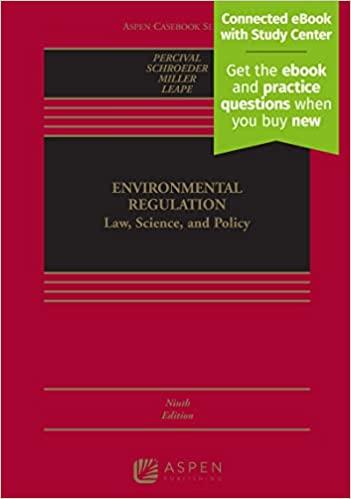Question
When a person hires a real estate agent to help them find a buyer for their property, they enter into a listing agreement. The listing
When a person hires a real estate agent to help them find a buyer for their property, they enter into a listing agreement. The listing agreement appoints the agent and does the following
| 1. | none of the above. | |
| 2. | The listing agreement is usually silent on all details like numbers, fees and costs and is more concerned with the artistic vision like the open house and staging, the nature, look and feel of web, print and television advertising, whether to utilize drones for filming etc. | |
| 3. | designates a listing price and term, gives the agent exclusive right to advertise the propertly on MLS and via the internet and TV during the term, requires the agent to pay the seller a commission which is usually a percentage of the sale price | |
| 4. | designates a term and gives the agent freedom to determine a selling price, gives the agent exclusive right to advertise the propertly on MLS and via the internet and TV during the term, requires the seller to pay the agent a commission which is usually a percentage of the sale price and directs the seller's lawyer to pay the commission directly to the agent from the sale proceeds | |
| 5. | designates a listing price and term, gives the agent exclusive right to advertise the propertly on MLS and via the internet and TV during the term, requires the seller to pay the agent a commission which is usually a percentage of the sale price and directs the seller's lawyer to pay the commission directly to the agent from the sale proceeds |
2.
What is an "acceleration clause"?
| 1. | An acceleration clause is a provision whereby the negotiations of a contract or loan are sped up to the fullest. | |
| 2. | none of the above. | |
| 3. | An acceleration clause is a provision whereby the full amount of a loan becomes immediately payable if the debtor so chooses. | |
| 4. | An acceleration clause is a provision whereby the full outstanding amount of a debt becomes immediately payable if the creditor so chooses. | |
| 5. | An acceleration clause is a provision whereby the full outstanding amount of a debt becomes immediately payable if the debtor defaults in making any installment payment |
3.
Which of the following statements about the nature of consideration istrue?
| 1. | All of the above. | |
| 2. | Consideration must involve a benefit; giving up something is not valid consideration. | |
| 3. | Adequate consideration is always a requirement. | |
| 4. | Sufficient consideration could be almost anything of value. | |
| 5. | Judges try to ensure that consideration from each party is of equal value. |
4.
In the grand scheme of bankruptcy law, the effect of a proposal, if accepted, is that it allows the debtor to retain control of his property. This is done by
| 1. | a debtor making an offer to his creditors, providing for the orderly repayment of debts, or some part of his debts, over a period of time. Monies payable under the proposal must be paid to the trustee for distribution to the creditors. | |
| 2. | a debtor sending a lengthy explanation and apology to each creditor asking for debt relief and whatever the creditors offer, if anything, incorporating into new terms of repayment to attempt to pay some of the debts off. If unable to, repeating the process so that creditors lower the amount once more. | |
| 3. | a debtor personally making an offer to each and every one of his creditors, providing a proposal to repay some of his debts, or some part of his debts, over a period of time. Monies payable are paid directly to the creditor by the debtor. | |
| 4. | a debtor making an announcement to his creditors, advising no repayment of debts forthcoming. | |
| 5. | a debtor personally reassuring his creditors that he would do better in the future and asking his creditors for loan or debt forgiveness with no, or nominal, payments against debts owing. |
5.
The unintentional tort of negligent misrepresentation does not require knowledge of the falseness of the information, only carelessness in its creation. To prove negligent misrepresentation, there must be a duty of care based on a "special relationship" between the representor and the representee and
| 1. | the representee must have reasonably relied on the negligent misrepresentation. | |
| 2. | all of the above. | |
| 3. | the representor must have acted negligently in making the misrepresentation. They must have fallen below the standard of care required of a professional making such a representation. | |
| 4. | the representation in question must be untrue, inaccurate, or misleading. | |
| 5. | the reliance must have been detrimental to the representee and damages resulted. |
Step by Step Solution
There are 3 Steps involved in it
Step: 1

Get Instant Access to Expert-Tailored Solutions
See step-by-step solutions with expert insights and AI powered tools for academic success
Step: 2

Step: 3

Ace Your Homework with AI
Get the answers you need in no time with our AI-driven, step-by-step assistance
Get Started


